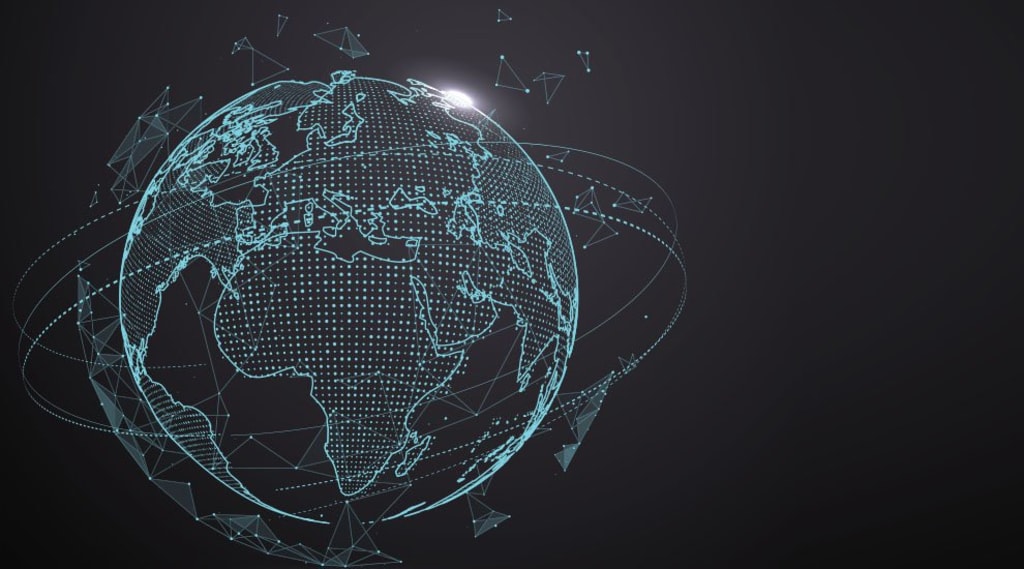Ways Blockchain Can Be Used in Developing Countries
Move over America, blockchain is for everyone. If you think about it, there are plenty of ways blockchain can be used in developing countries to improve life and commerce too.

Blockchain technology is a game changer in more ways than you could ever imagine. It's created a new a commerce hub, created a new way of thinking about currency, and has even been proven to be one of the most powerful innovations when it comes to infrastructure.
Despite everything, blockchain still has a reputation for being elitist and usable only in "first world" countries like Japan, America, and South Korea. This just isn't true.
If you look at the cold, hard facts, the ways blockchain can be used in developing countries make it an ideal vehicle for improving millions of peoples' quality of life. Don't believe it? Consider these amazing ways blockchain could change life around the world.
More Green Energy
The energy grid is absolutely nightmarish right now, and because it's impossible for grids to determine what energy was made using "green" methods and what energy was made traditionally, recordkeeping has been incredibly difficult. This has led to higher costs and slower payout times for companies that want to bring green energy to the world.
Most experts agree that blockchain can give us a smarter energy grid—and absolutely should. This is doubly true in countries where pollution is sky-high, such as China, India, and Zimbabwe.
One of the best ways blockchain can be used in developing countries could be to upgrade their energy grids using blockchain. By automating record keeping via a decentralized digital ledger, the majority of red tape surrounding green energy would go.
This is particularly important for people who live in areas affected by pollution. Coal mining, oil refineries, and other "non-green" energy methods tend to cause excessive pollution that can lower lifespans. By upgrading the grid, you could be saving lives.
A New Economy
Believe it or not, blockchain can be used by developing countries as a way to circumnavigate the issue of underbanking. Many war-torn and high-poverty regions do not have access to banking, which makes money storage incredibly difficult for people who are displaced.
Decentralized currencies and decentralized wallets could help people that don't have a bank store wealth, and potentially set up life elsewhere if lucky. The concept of an Initial Bounty Offering, for example, could allow people who were once "locked out" from economic participation to establish themselves.
More Transparent Polling
Corruption and voter fraud constantly plague developing countries, which is why one of the smartest ways blockchain can be used in developing countries would be to use blockchain to record votes. Blockchain is transparent and shows clear signs of tampering the moment that it's been modified.
Unlike other electronic means, blockchain technology cannot have outsiders alter the ledger without signals being given off. As a result, it would be a clear-cut way to guarantee that elections are held in a fair manner.
Better Medical Record Keeping
This is one of the ways both advanced and developing countries can use blockchain in a super-beneficial way. Multiple blockchain startups in the healthcare field are now working on a new way to store patient information, get more accurate billing, and prevent insurance fraud.
By storing medical records on blockchain, healthcare groups could cut costs immensely on both the insurance and provider sides. For developing countries (and the United States), lower healthcare costs could prevent thousands of bankruptcies every year.
With the current status quo, people who live in developing countries have a much harder time with international travel than people who come from developed regions. One of the ways blockchain can be used in developing countries is to facilitate international travel.
A huge part of the reason why is due to the massive paper pile that comes from paper-based recordkeeping. Records get lost, things get hard to verify, and people end up struggling to get a visa.
By shifting to blockchain recordkeeping, countries would be able to expedite visa creation and get full assurance of individuals' data for passport use. This would make the legal aspect of traveling abroad better, by a lot.
Currency exchanges are another hurdle, and in the future, apps like CoinBase could become the only wallet they need for their travel.
More Stabilized Currency
Speaking of international travel and dealing with foreign currency exchanges, could you imagine what would happen if a developing country decided to drop fiat money and use Bitcoin instead? Think about that for a second.
Considering that Bitcoin has been proven to be a far more stable currency than the fiat currencies in certain developing countries, it could be the quickest route to a more stable economy.
Innovative Tech
Today, developing countries are quickly becoming more powerful than ever thanks to an increased interest in scientific development. When China was still a developing country, it was their innovation and rapid adaptation of cutting-edge tech that made them into a world power.
Blockchain technology can be used (and potentially developed) on any device, be it a smartphone, a tablet, or a laptop. This makes it more accessible than prior tech.
Because so much innovation comes from developing countries, it may not be easy to figure out the ways blockchain can be used in developing countries. They might not have even invented some of the tech yet.
Mobile Banking
Cryptocurrency banking and Initial Bounty Offerings aren't the only ways blockchain can be used in developing countries to bolster banking. Kenya and countries in the surrounding regions have started to use their mobile phones to bank currencies—all without a bank necessary.
The mobile banking system is called M-Pesa, and with the addition of blockchain technology, the need for much of the paperwork and fees used in banking could go away. This would lead better storage of fiat currency as well as more stability for everyone involved.
Real Estate
Most countries have a serious problem when it comes to documenting real estate, even in the United States. One of the easiest ways blockchain can be used in developing countries and developed countries alike would be to create a better tracking system for real estate transactions.
Smart contracts, in particular, could make transactions safer for all parties involved. Though developed nations could definitely benefit from this tech, the truth is that developing countries will see an even bigger boom. The reason why? Paper-based recordkeeping is inefficient, easily fudged, and generally relegated to poor countries.
Infinite Possibilities
The ways blockchain can be used in developing countries is truly infinite. Blockchain can be a vehicle for tech innovation, economic opportunities, and even lower medical costs. No matter how it's being used, it will turn the developing world into a far better place to be.
About the Creator
Cato Conroy
Cato Conroy is a Manhattan-based writer who yearns for a better world. He loves to write about politics, news reports, and interesting innovations that will impact the way we live.






Comments
There are no comments for this story
Be the first to respond and start the conversation.